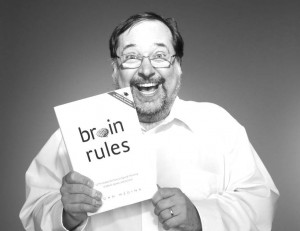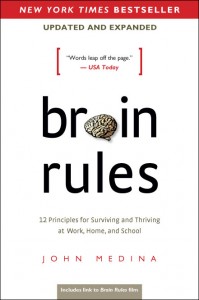幸福的家庭都是相似的:媽媽被寵愛,爸爸被尊重,孩子被接納
 ❤️ 媽媽被寵愛,家庭更幸福
❤️ 媽媽被寵愛,家庭更幸福
曾有一位爸爸向美國著名的腦神經科學家梅迪納教授請教:教授,你告訴我,我怎樣才能幫兒子考上哈佛大學?
梅迪納回答説:從現在開始,你回家好好愛你的老婆。
教育專家孫雲曉後來專門就此事追問梅迪納:為什麼您當時讓那位爸爸回家疼老婆?
梅迪納回答説:在美國,對學業成就的最佳預測指標,就是家庭情緒的穩定性。家庭情緒穩定性大部分可被妻子的情緒所預測。
簡而言之:妻子情緒越穩定,家庭情緒就越穩定,孩子成績也就越好。而想要妻子情緒穩定最好的辦法,就是寵愛她。
生活在丈夫的愛中的女人,她的心是柔軟的、温柔的、安定的,會寬容對待身邊的每一個人,會創造出一個愉悦温馨的家庭氛圍。
相反,一個長期忍受着丈夫的冷漠、埋怨、暴躁的女人,會把這些負面情緒都轉嫁給家庭裏的其他人,一個家將從此不得安寧,怨氣重重。
國外有句家喻户曉的諺語,“Happy wife happy life”。翻譯成中文就是“老婆開心,生活舒心”。這句話應該成為每一位中國丈夫的座右銘。
 ❤️爸爸被尊重,則更愛媽媽
❤️爸爸被尊重,則更愛媽媽
愛默生·艾格里奇博士是著名的婚姻問題專家,在30多年的婚姻諮詢工作中,愛默生髮現了經營家庭和婚姻的真諦——愛與尊重。如果一個丈夫不愛妻子,妻子則不會尊重他,反過來,如果一個妻子不尊重丈夫,丈夫則不會愛妻子,於是婚姻就會陷入一個“瘋狂怪圈”。
一個被寵愛的女人,會容光煥發,温潤如玉。一個被尊重的男人,則會精神飽滿,神采奕奕。男人越寵愛女人,女人則會更尊重男人。女人越尊重男人,男人則會更愛女人。愛情如此,經營家庭也是如此。妻子尊重丈夫,丈夫更愛妻子,家庭則更温暖。
 ❤️孩子被接納,家才真的為家
❤️孩子被接納,家才真的為家
不能無條件的愛和接納孩子,這是很多父母的通病。可是在孩子眼中,幸福家庭的標準恰恰是能否接納他。
有一個心理機構做了份專題調查,讓幼兒園到大學的不同年齡段的孩子在一起暢所欲言,説出他們對幸福家庭的定義。前三項分別是:父母恩愛、父母充分尊重自己的意願、父母真正關心和欣賞自己。
其實我們每個人對家的定義都是如此,我們常常把家比作母親的臂彎,因為家可以給人無條件的愛和接納,就像母親的懷抱那麼温暖。
家是唯一不需要理由就可以回去的地方;是讓你覺得不管變成什麼樣,那都是能接納我的地方;是就算你已經為人父母,在人生走到低谷時,還想回去父母身邊重新獲取力量的地方。
一個好的家庭應該是每個人都可以從中獲得慰藉,如果一個家可以讓媽媽獲得寵愛,讓爸爸獲得尊重,卻不能讓孩子獲得接納,那家就不是完美幸福的家。
家庭是母親的世界,父親的王國,兒童的樂園。這就是一個幸福家庭應有的模樣。
(來源:節錄自「青欖家長地帶」文章/網絡圖片)
About John Medina
John J. Medina is a developmental molecular biologist with special research interests in the isolation and characterization of genes involved in human brain development and the genetics of psychiatric disorders. Medina has spent most of his professional life as an analytical research consultant, working primarily in the biotechnology and pharmaceutical industries on research issues related to mental health.
He was founding director of the Talaris Research Institute, which supports researchers such as Patricia Kuhl and John Gottman. He directed Talaris until 2006, and now is the director of the Brain Center for Applied Learning Research at Seattle Pacific University, which has worked on creating learning environments at Woodland Park Zoo.[3] He is also an affiliate professor of Bioengineering at the University of Washington School of Medicine.
Brain Rules: 12 Principles for Surviving and Thriving at Work, Home, and School
Most of us have no idea what’s really going on inside our heads. Yet brain scientists have uncovered details every business leader, parent, and teacher should know–such as the brain’s need for physical activity to work at its best.
How do we learn? What exactly do sleep and stress do to our brains? Why is multi-tasking a myth? Why is it so easy to forget–and so important to repeat new information? Is it true that men and women have different brains?
In Brain Rules, molecular biologist Dr. John Medina shares his lifelong interest in how the brain sciences might influence the way we teach our children and the way we work. In each chapter, he describes a brain rule–what scientists know for sure about how our brains work–and then offers transformative ideas for our daily lives.
Medina’s fascinating stories and sense of humor breathe life into brain science. You’ll learn why Michael Jordan was no good at baseball. You’ll peer over a surgeon’s shoulder as he finds, to his surprise, that we have a Jennifer Aniston neuron. You’ll meet a boy who has an amazing memory for music but can’t tie his own shoes.
You will discover how:
– Every brain is wired differently
– Exercise improves cognition
– We are designed to never stop learning and exploring
– Memories are volatile
– Sleep is powerfully linked with the ability to learn
– Vision trumps all of the other senses
– Stress changes the way we learn
In the end, you’ll understand how your brain really works–and how to get the most out of it.








